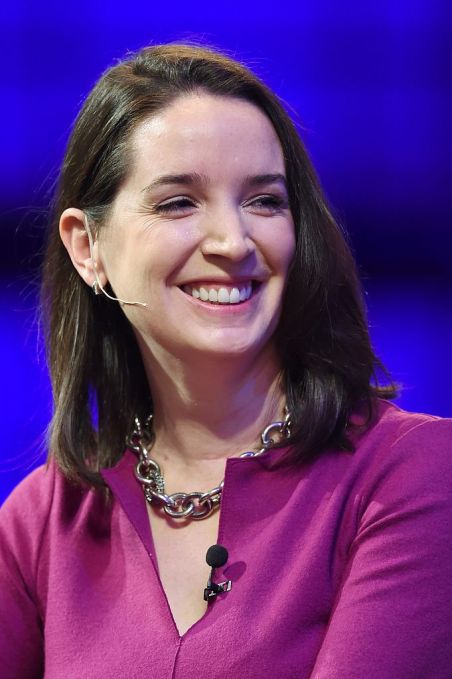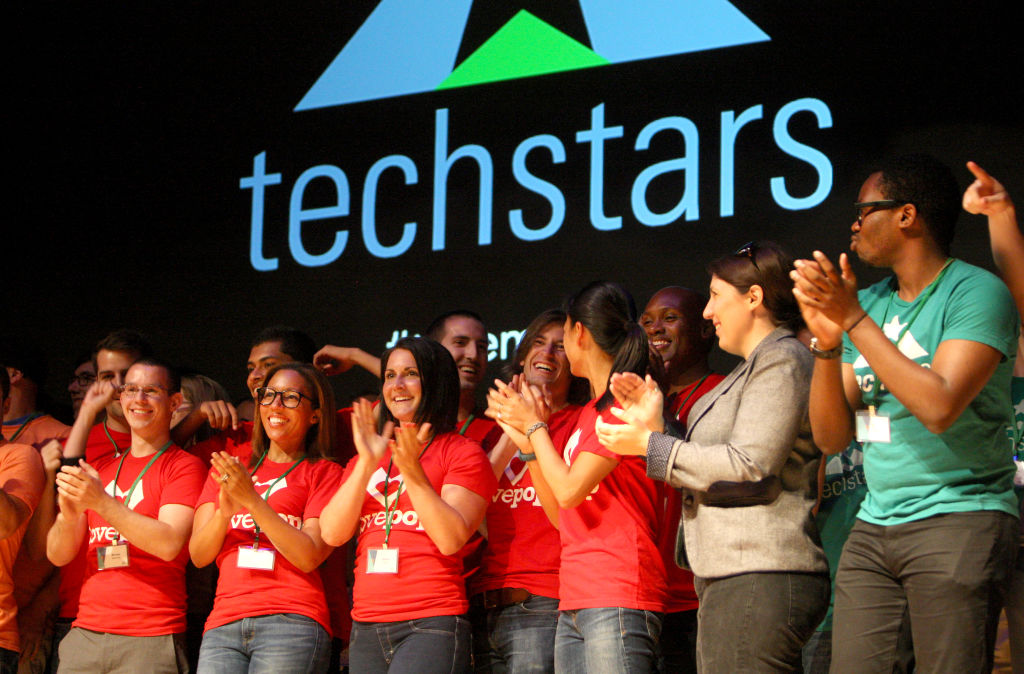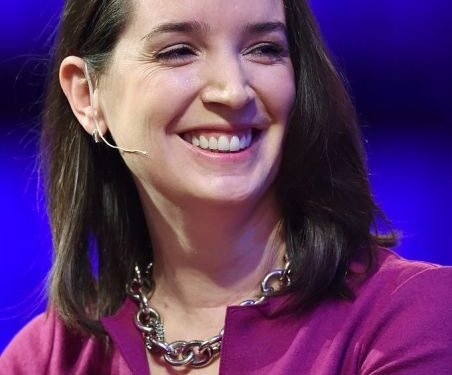During a Zoom meeting with her senior leaders last summer, Techstars CEO Maëlle Gavet sat at a table, an open notebook in front of her, a laptop to her side, her arms crossed. An attendee had just asked her about the progress of the organization’s $80 million Advancing Cities Fund, which was raised through J.P. Morgan’s Private Bank Platform.
In the calm demeanor of someone trying to watch her words, she answered that Advancing Cities was not going well. Multiple incidents across multiple programs had caused J.P. Morgan to freak out, according to sources familiar with the conversation, including evidence seen by TechCrunch.
Techstars had begun assembling cohorts and deploying out of the fund since 2022 with a goal to back more than 400 companies founded by underrepresented founders. It led to the creation of Techstars programs in at least eight cities, including Oakland, Atlanta, and Miami.
But by August 2023, when this meeting took place, J.P. Morgan’s team had become “disengaged,” a characterization that seven people associated with the program made to TechCrunch independently. Gavet admitted in the meeting that the fractured relationship was not entirely the bank’s fault: Missteps by Techstars had caused much of the tension.
Techstars has currently invested about two-thirds of the fund, Gavet recently told TechCrunch, adding that the bank is “an amazing partner” and “very active in our program.”
However, J.P. Morgan has yet to tell Techstars whether it will renew the partnership for an Advancing Cities 2 Fund once the initial contract expires in December, sources say. That decision was supposed to be handed down last summer so that Techstars could start fundraising and begin deploying capital in 2025.
This means the fate of the Advancing Cities programs — and some of the around 20 people who work at Techstars in this program — is up in the air.
Both J.P. Morgan and Techstars declined to comment on the future of the partnership. But Techstars spokesperson Matthew Grossman emphasized that the current fund is still active and has invested in 263 companies with plans to back another 200. “This year, we will continue to deploy the fund until the fund is deployed. And then like every other venture fund, after that fund is deployed, we’ll see what happens next,” he told TechCrunch.
A “long series of incidents”
Techstars is undergoing an operational restructuring, including cutting programs worldwide, laying off staff, and shuttering accelerators in cities like Oslo, Austin, and its former mothership, Boulder, Colorado. It missed 2023 revenue projections and logged $7 million in losses, according to preliminary numbers seen by TechCrunch.
At the same time, Techstars is known for supporting founders of color and giving them opportunities that would otherwise be hard to come by. Funding for founders of color is so chronically dismal that access to capital can be life-changing.
From the outside, the uncertainty of this program’s future may look like J.P. Morgan is simply retreating on its diversity promises, following the path of many corporate institutions that walked back commitments made after the murder of George Floyd. However, several current and former Techstars employees say that Techstars has struggled to live up to the robust expectations that J.P. Morgan had when it partnered with the firm for this fund.

Gavet became CEO of Techstars in 2021. Image Credits: Handout / Handout
A Techstars presentation from another meeting that also took place in August noted a “long series of incidents” since Techstars started deploying its Advancing Cities Fund in 2022. These involved multiple complaints about directors at multiple programs, as well as issues with events, including behavior, programming, naming, and sponsors. The bank grew so concerned about an invitation extended to a politician at one DemoDay that it withdrew its branding, sources said.
J.P. Morgan also flagged four instances of “inopportune” wording around Techstars’ diversity goals. For instance, Gavet and a managing director wanted to call the Oakland program Techstars Silicon Valley despite J.P. Morgan’s intention to emphasize the accelerator’s focus on and presence in a prominent Black city. In the end, the accelerator program was named after Oakland.
At least three sources said Techstars received complaints from founders about one managing director of an Advancing Cities program, some allegations of which described hostile working environments. TechCrunch was unable to confirm specific allegations, though we’ve learned that this managing director has since left that program and now heads another Advancing Cities program. Techstars and J.P. Morgan declined to comment on the incidents.
Conflicting definitions of diversity
One of the biggest issues, according to sources and documentation seen by TechCrunch, was that J.P. Morgan wanted at least 50%, but ideally 70%, of each city cohort’s investment to be into startups led by underrepresented founders that matched a specific definition of a diverse founder.
Data seen by TechCrunch, however, showed that diversity in the Advancing Cities programs started steadily declining below the threshold last year. At one point last year, at least one program did not hit the 50% benchmark at all, although others compensated by hitting nearly 70%.
For $80 million, sources said, J.P. Morgan simply expected better results.
J.P. Morgan had presented Techstars with a narrow definition of who it considered to be a diverse founder, too: someone of Black, Latino, Indigenous, or Pacific Islander descent. Internally, however, Techstars used a much broader definition of the term, incorporating gender, age, and veteran, disability, and immigrant status. The result is that managing directors have the option to add two different DEI tags to describe a company: J.P. Morgan diverse and/or Techstars diverse, according to documents seen by TechCrunch.
Five people close to the matter, some of whom are no longer at the company, said there has always been a focus on increasing gender diversity within Techstars programs, but race would fall by the wayside. Some managing directors struggled to source founders who would be considered diverse under J.P. Morgan’s standards. The different tags and broad definition of diversity helped Techstars spin some numbers when it comes to publicly stating the diversity breakdown of their programs, said three sources with knowledge of the matter.
Techstars denied this characterization. “We measure different datasets for different purposes,” Grossman told Techcrunch. “We believe in investing in underrepresented founders. And when we say underrepresented, we mean everybody who is not traditionally under the gaze of traditional venture capital.”

Techstars has been undergoing an operational restructuring as it attempts to cut costs. Image Credits: John Blanding/The Boston Globe / Getty Images
Grossman emphasized that, as of late last year, 63.5% of the Advancing Cities CEOs accepted into the program, who agreed to self-report their race, are Black, Latino, Indigenous, or Pacific Islander. He added that every cohort besides one has hit the 50% objective. This report, made public late last year, covered only the first half of the fund’s investment and initial cohort acceptance. It did not specify the diversity percentage of graduates.
Pay tied to returns
Another source of friction was that J.P. Morgan wanted the focus of the program to lean toward a high percentage of diverse founders, but, like all investment firms, Techstars rewards managing directors primarily based on returns.
That means managing directors are trained to search for startups that they believed were likely to graduate from the program and land follow-on funding from other VCs. That provided another layer, making some managing directors prioritize program acceptance on metrics other than founder diversity.
“We’ve always said that we are looking for the best founders,” explained Monica Wheat, managing director of the Detroit Advancing Cities program. “We’ve always also said that we are doing that but targeting underrepresented founders. And we do that specifically through all the MDs’ respective networks and respective experience as investors. We’re investors first and foremost.”
Techstars said that managing directors’ compensation includes carried interest, aka a percentage of the fund’s profits, and a cash bonus. To align rewards with J.P. Morgan’s mission, some percentage of the bonus for managing directors in the Advancing Cities is tied to how many of their startups fit the diversity criteria.
In addition to the friction over acceptance priorities, four sources said J.P. Morgan was also frustrated with what it saw as high staff turnover in the leadership suite. Since last year, Techstars’ chief revenue officer, chief technology officer, chief financial officer, chief accelerator investment officer, chief capital formation officer, and chief legal officer have all departed the C-suite. This is in addition to the 10-plus managing directors who have left for various reasons and other staff turnover.
Back in that August meeting with Gavet, once she confessed to the shaky status of the program, attendees peppered her with questions, mainly asking who would replace J.P. Morgan if the bank decided to end the partnership. Gavet explained that replacing J.P. Morgan as a fundraising partner would be difficult, if not impossible, because it is one of the few banks with a fundraising platform that allows qualified investors to back early-stage startups. Raising a fund on their own would be rough, given the overall challenging fundraising environment in 2024, according to sources and records seen by TechCrunch.
She added that Techstars’ own accelerator fund could not take over Advancing Cities’ entire footprint, either, and that it was essential for the fund to be successful.
But as recently as this month, sources said that leadership had warned staff in all-hands meetings that if the contract with J.P. Morgan doesn’t renew in December, then people in those programs should be ready to go to other programs or apply for other internal roles if they are willing to relocate, or they may be exited from the company.
It is unclear when the returns of Advancing Cities are expected, but if it follows a traditional fund cycle, J.P. Morgan could be waiting at least seven years to see the results of the $80 million investment. This December, however, comes well before then.
Current and former Techstars employees can contact Dominic-Madori Davis by email at dominic.davis@techcrunch.com or on Signal, a secure encrypted messaging app, at +1 646.831.7565. You can also contact Mary Ann Azevedo by email at maryann@techcrunch.com or by Signal at +1 408.204.3036.










